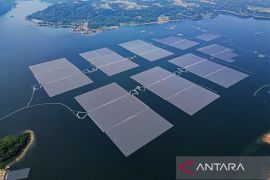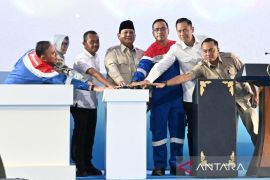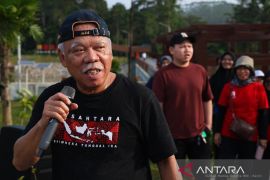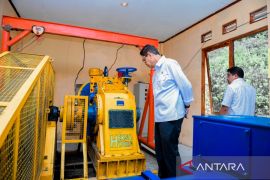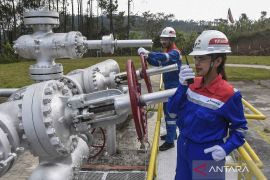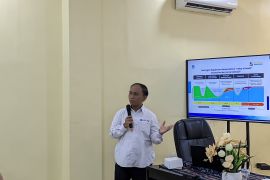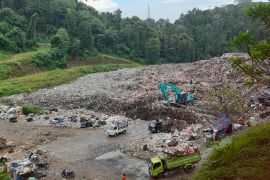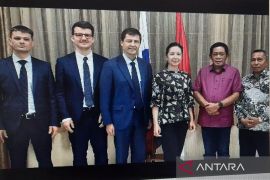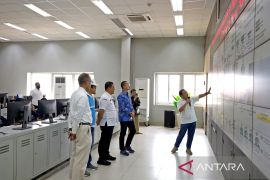Member of the House Commission VII Azwir Dainy Tara of the Golkar Party said on Monday the tender must be repeated on the ground only one bidder advanced to the next phase of tender process.
"Under Presidential Decree No. 80 of 2003, there must be at least three bidders for a project. If there was only one bidder, the tender must have violated the decree," he said. He questioned why PLN did not open the price bids of the three other bidders.
Another member of the House Commission Agus Sulistyono of the Nation Awakening Party (PKB) said PLN had no right to name a consortium of Japan`s Electric Power Development Co (J-Power), Itochu Corp and Indonesian coal miner Adaro Energy as a tender winner.
Agus said PLN should have stopped the tender process when only one bidder passed technical and administrative evaluation. He questioned PLN`s insistence on continuing the tender process by opening JPower`s price bid while other bidders were disqualified.
"The tender must be declared failed and repeated because there was only one bidder," he said. He also questioned why PLN did not open the price bids of the other three bidders.
Dito Ganinduto who is also a member of the House Commission VII said on Wednesday the tender had the potential to inflict losses to the state as other bidder disqualified from the tender made a lower bid for every kWh of electrical power.
"The tender must be repeated," he said adding the tender violated Presidential Decree No. 80 of 2003 on procurement of goods and services.
PLN named JPower a tender winner of the first ever public-private partnership project and declared three other bidders -- China Shenhua Energy Company Ltd, consortium of China`s CNTIC-Guandong Yudean, and Japan`s Marubeni Corporation-- as having failed to pass technical and administrative evaluation.
JPower bid 5.79 cent dollar for every kWh of electrical power, or lower than the PLN`s owner estimate price. However, one of the three other bidders was believed to have bid 5.78 cent dollars for every kWh.
When coal is priced at US$90 per ton and every kWh of power at 5.79885 cent dollar, PLN must pay JPower US$820,386,505 per year or US$20,509,662,623 during 25 years of operation.
But if every kWh of power is priced at 5.786275 cent dollar, PLN will pay US$818,607,469 a year or US$20,465,186,734 during 25 years of operation.
Despite the protest, both Reforminer Institute deputy director for research Komaidi and chief of PLN labour union Ahmad Daryoko said on Tuesday there was no need for PLN to repeat the tender for the construction of 2x100 megawatt-capacity power plant on the ground it would impede its efforts to meet domestic power needs.
Komaidi said the repeat tender would only have a detrimental effect on the investment climate. Indonesia has so far been known as having uncertain investment climate due to a lack of legal certainty.
"As the tender was conducted through proper mechanism and all phases of technical and business analyses, the naming of JPower as a tender winner is acceptable," he said.
Meanwhile, Daryoko said the tender was held transparently and the bids from tender participants were also very rational so that there was no reason for PLN to repeat the tender.
"The price of below 6 cent dollar for every kWh from a coal-fired power plant is very rational," he said.
Daryoko said the tender for the construction of the power plant should not refer to Presidential Decree No. 80 of 2003 and therefore, the reason behind the call for a repeat tender for the project was unacceptable and would only impede PLN`s effort to provide power supplies.
"PLN must proceed with the project. There is no reason to suspend investment in the power plant," he said.
Earlier, PLN senior manager for corporate communication Bambang Dwiyanto said the company would not repeat the tender because it had been based on Presidential Regulation No. 13 of 2010 on public-private partnership. The regulation allowed a single bidder become a tender winner, he said.
Dwiyanto said PLN had conducted the tender according to standing operation procedures and JPower was the best among the existing bidders based on technical and financial evaluation.
PLN started the tender last year with a dozens of international companies participating. However, only seven of them were qualified for the tender.
By the April 29, 2011 deadline, only four participants submitted their bids to PLN. They were China Shenhua Energy Company Ltd, a consortium of China National Technical Import and Export Corporation-Guandong Yudean, Japan`s Marubeni Corporation and consortium of Japan`s J Power-Itochu Corp-PT Adaro Energy Tbk. However, only JPower passed technical and administrative evaluation.
"We did not open the bid prices from other participants because only one participant (JPower) passed it (technical and administrative evaluation). We only opened the consortium`s bid price which was very good. This is PLN`s first project based on Presidential Regulation No. 13 of 2010," he said.
On Wednesday, one of the bidders, Marubeni Corp., was reported filing an objection to the decision declaring it as having failed to pass the tender process.(*)
S012/H-NG/A014
Reporter: Suharto
Editor: Jafar M Sidik
Copyright © ANTARA 2011
